PioSolver Course - Endboss Package
Everything you need to know about PIO-
No Previous Experience/Knowledge Required
-
Learn How to Use The Most Advanced and Powerful Features
-
6h of Material, inc feature guide, HH analysis
PLUS bonus Mental Game Series
Blockers in 20m
Learn when to make the big move-
Learn How Blockers Affect Your Folding, Calling and Bluffing Decisions
-
17 Rapid Fire HH analyses
-
Make Smarter Decisions, Play Better =>
Crush Your Opponents

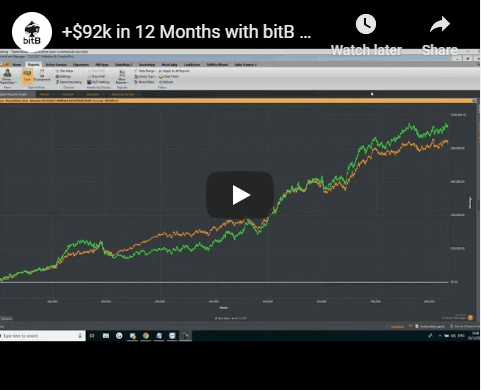
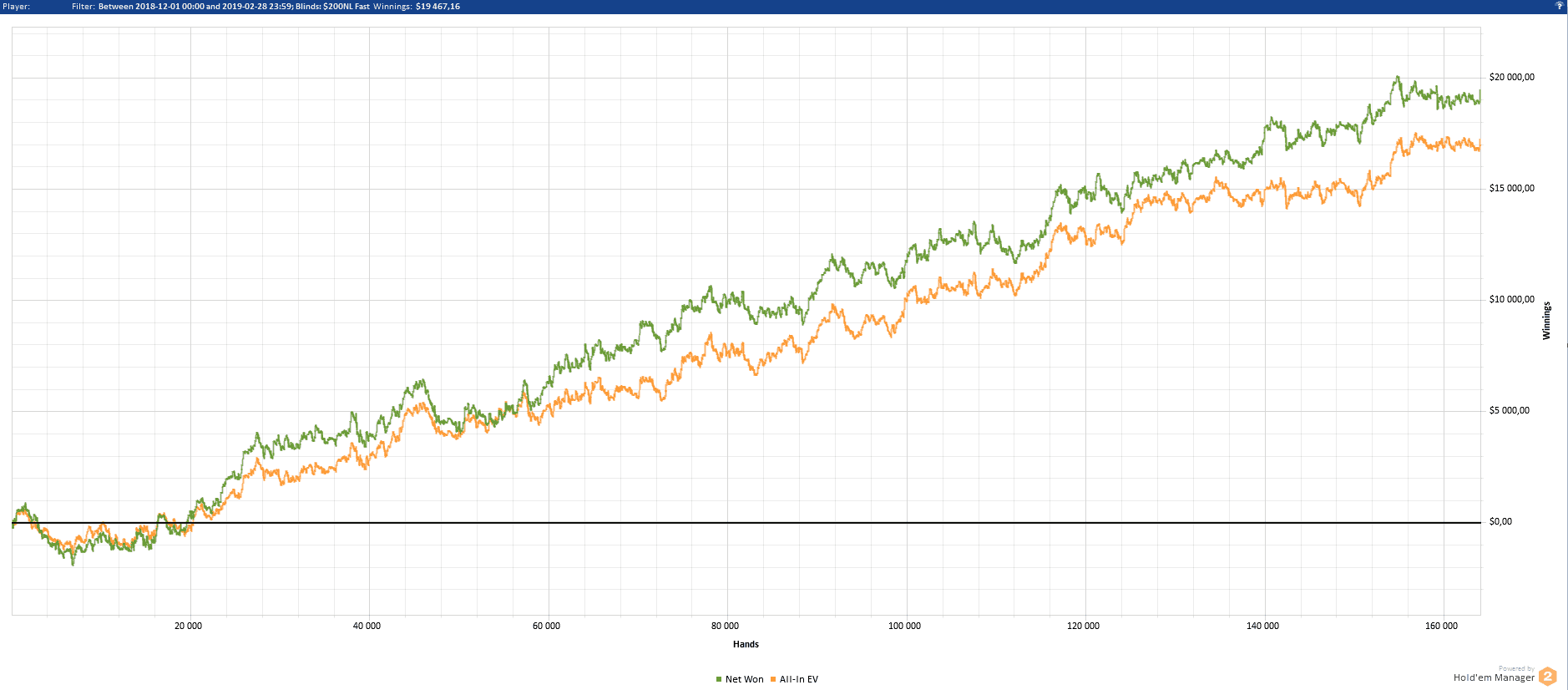
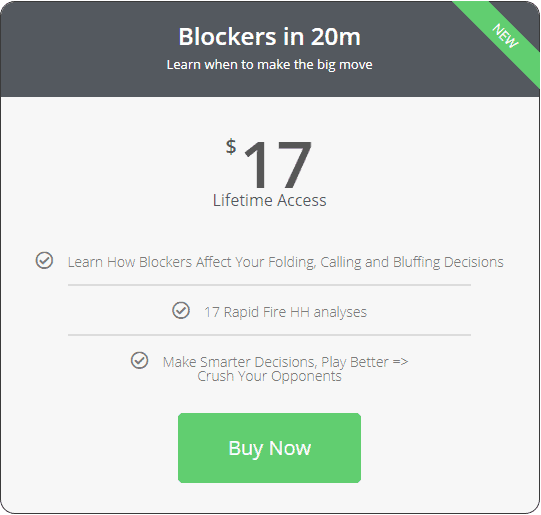
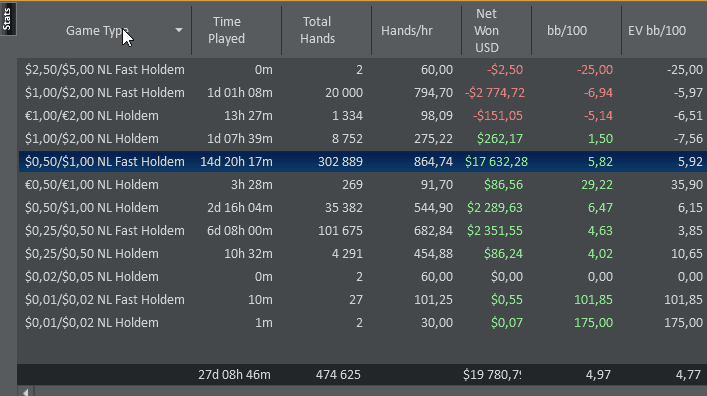
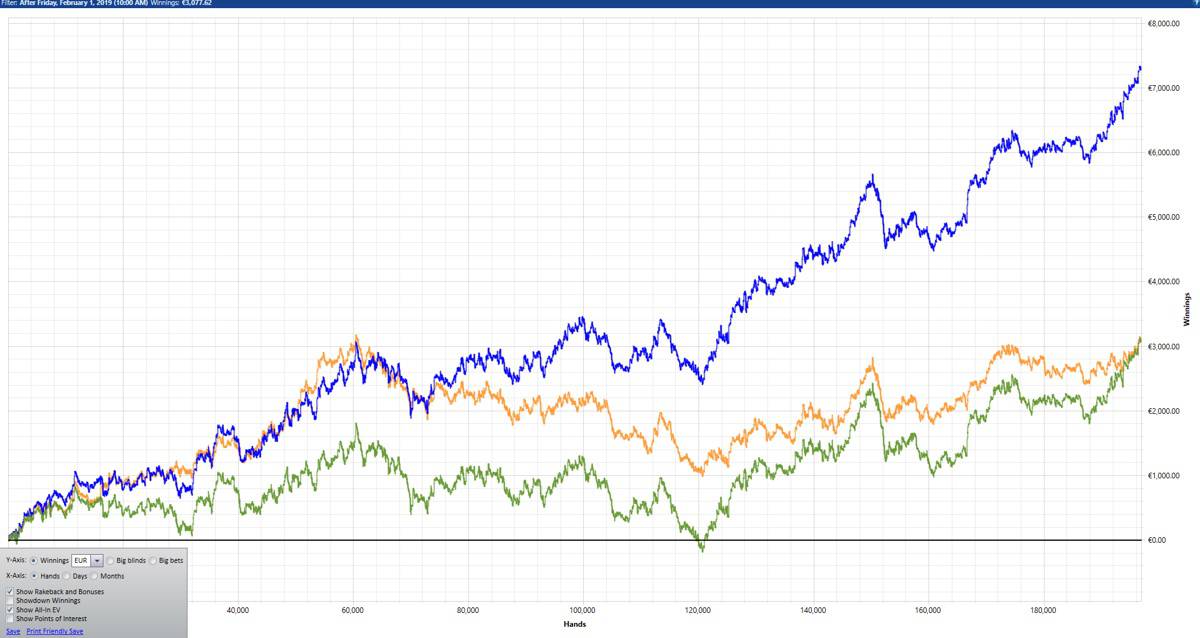
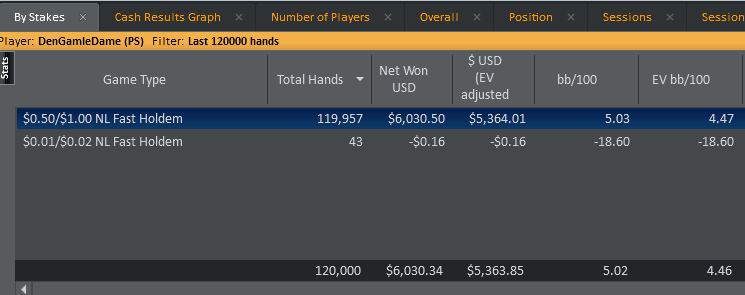

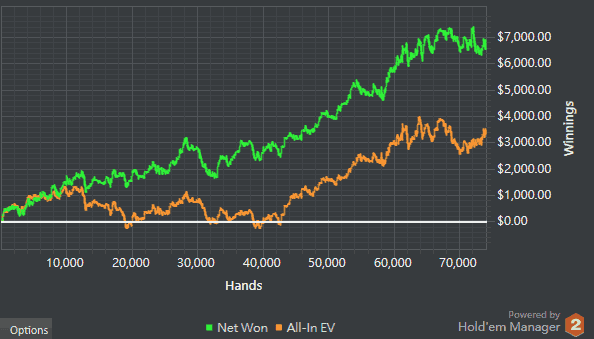
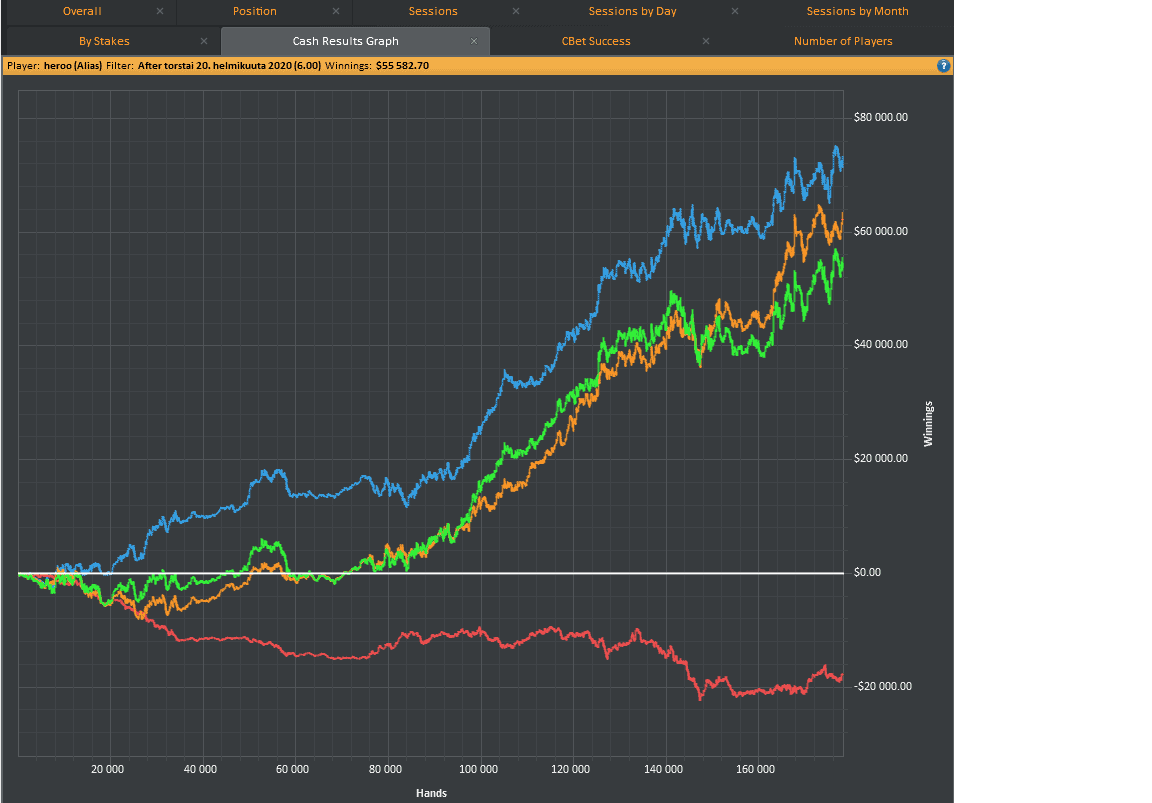

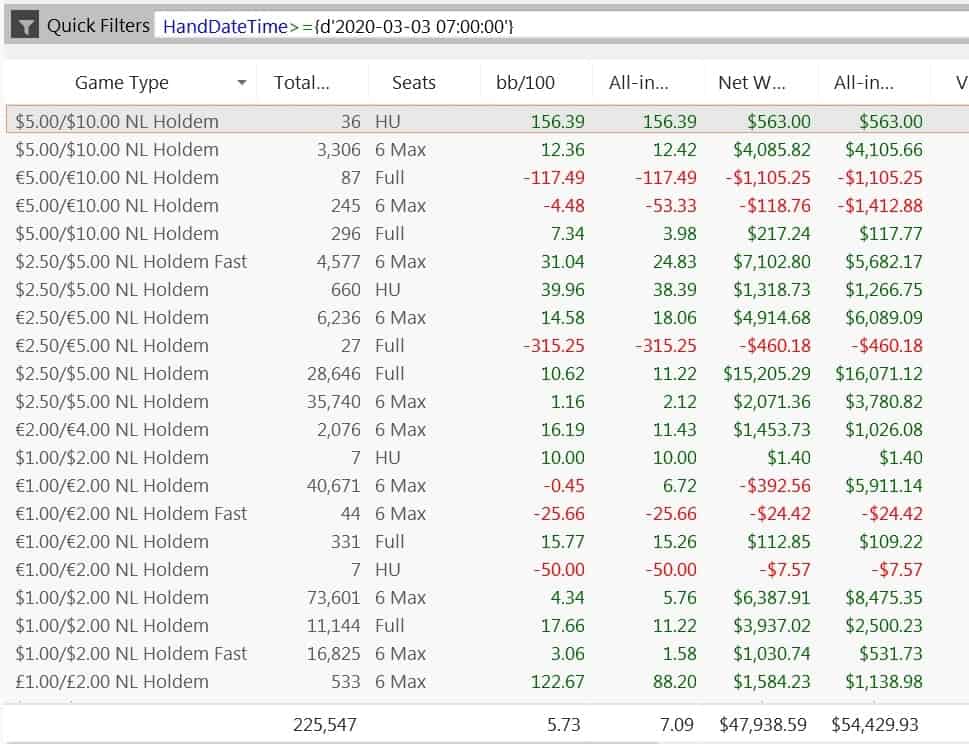
Compounding in Poker
What’s up gang.
Today we’re going to talk about what Albert Einstein called ‘The 8th Wonder of the World’, that is compounding or compound interest, as it relates to playing and improving at poker.
Our Ancestral World is Normal
As humans, we intuitively understand ‘normal’ distributions and processes. For example, consider running. We understand that the best runners can be much faster than the a poor/unfit runner. We could break it down further and reduce running speed to a few easily understood variables, as in:
Speed = length of stride * strides/min
Or some such a thing. The speed of runners (as with most physical quantities such as height, weight etc) roughly follows a normal distribution – some people can barely walk, some people are Mo Farah/Usain Bolt, and most people are in the middle.
We understand that if we wanted to change some physical property about ourselves, the easiest gains would be those we made in the first month or two – as we improved, further gains of the same absolute magnitude would become harder and harder. It’s considerably easier for you to improve your 100m time by 1s than it is for Usain Bolt.
The Modern World is Not Normal
In none-physical domains, the normal distribution is largely replaced by another distribution, named after the Italian philosopher Pareto. Distributions of this type are radically different than those we are built to intuitively understand. For example, you could diligently record the wealth, and the average wealth, of a million randomly selected members of the human race. Then on your 1,000,001th observation, you could draw Jeff Bezos, and find that the average wealth of your sample jumps from $1,000 or so to well over $100,000. I.e. you find that your average was a completely meaningless number, as 1 sample has made your previous million samples into a rounding error.
This also applies such quantities as the number of people in settlements, the number of visitors to websites… even the hourly of a poker player.
Compounding Improvements Calculator
Check out this very crude little calculator I made to illustrate the effects of compounding improvements over time.
https://docs.google.com/spreadsheets/d/1C3TknuWq75iHJRzFXySIw0lPkn3bdiKtnYPjXT6
First off, go to file -> make a copy so you can play around with the numbers. The fields marked blue are the parameters you can edit.
Initial hourly is exactly what it sounds like. An exact figure isn’t necessary to illustrate the point, but if you wanted to find yours, youd just multiply your evbb/100 winrate by your average stake, and then by how many hundred hands you play an hour.
Days of improvement is also self-explanatory, but do try to be realistic with your input. #TakeNoDaysOff is great for Youtube hype, not so much for sustainable progress.
Improvement over field- the standard of poker played at X stake rises on average over time. A bad 100nl reg now would have crushed high stakes in 2005. So some amount of improvement is necessary just to maintain your level, relatively speaking.
Some things to notice
1. The Details Matter
200 study days improving at 0.5% per day yields a 2.7x improvement. 300 days improving at 1% per day yields nearly 20x.
I mention this to show you that every day counts. At first glance there doesn’t seem a massive difference between someone who works 5 days a week, 40 weeks a year and someone who works 6 days a week, 50 weeks a year. It’s so easy on a random Tuesday afternoon to feel like what you do doesn’t matter that much. But it does- if you want to separate yourself from the herd, you need to make the most of every opportunity you’re given.
2. Your Starting Point is Irrelevant
Expanding on the above example, note that after a year, someone diligent starting from $5/hour would wind up making nearly double the hourly of someone lazy starting from $20/hour.
After 2 years, they’d be making 10x.
This clearly shows that attitude and hard work, consistently applied, beats any amount of talent, every single time.
3. In the Long Run, Variance is a Footnote
In these examples, we are talking about changing the signal- a player’s hourly. The problem in the real world is that the noise, I.e. variance, can and does swamp the signal over small samples. If someone is too wrapped up in how their last month, session or 5 minutes has gone, they waste their limited mental resources watching what is basically a random walk.
By instead focusing mental energy on the process, you can change the signal in such a way that no amount of noise can stop you.
Compounding in Practise
If you’ve (wisely) grown to distrust spreadsheets, consider how this works in practise. Two players set off into the poker world with equal skill, but player 2 is a slightly harder worker. He choses to put in a few hours extra work each week cultivating a strong mental game and playing single raised and 3bet pots a few % better than his competitor. After a few months of this, he is a measurably stronger player, regardless of how either players results happen to have gone.
Who’s going to make it through the rake-mire that is microstakes first? Who is more likely to make their shot at the next stake level stick? Who’s more likely to enter the big tourney that’s coming up (and maybe bink it and land a podcast appearance/sponsorship)? Who’s more likely to get their first hundred/thousand Twitch followers? Who’s in position to take a shot at real stakes when a unusually good spot comes up?
Hopefully this thought experiment illustrates a crucial concept to understand in the modern world – advantages go to those who already have an advantage. If something happens (like a pandemic) and internet traffic 2x’s, the biggest winner is Google, not some random site (who will probably see no appreciable change). If a whale turns up and wants to play 200kNL online, the vast majority of the money goes not just to the guy who’s put in the work beforehand to be comfortable playing these stakes, but to the guy so comfortable with these stakes that he’s willing to put himself AND other players in the game.
When online poker popped off earlier this year in the wake of the pandemic, this advantage didn’t represent an opportunity for someone who had never played before to make any money. The money trickles up, meaning the biggest gain was to those playing nosebleeds, followed by highstakes, followed by midstakes and all the way down.
Stoicism
You can’t control whether you pop off and have a top 1% run month to month. As I mentioned before, the difficulty of being human and playing poker is that over short timeframes, the noise drowns out the signal to the extent it’s hard to even know whether you’re making progress. At the same time, while you’re getting started, it’s easy to feel like the juice isn’t worth the squeeze – why load up this Pio sim and try to play a spot a fraction better if it’s going to increase my hourly from $5 to $5.01?
But when you bear in mind the effect of compounding, it changes things – you put in this rep for a 1c boost in hourly so that the next rep might be worth 2c. And so that the 1,000th rep might be worth an extra $X who knows how much.
To return to our running analogy – imagine you undertook a training program to increase your stride length by 1%. Except that you can take it over and over, it actually gets easier and more enjoyable each time, and there’s no known upper limit to how long your strides can get. It’s extremely difficult to imagine, in a mind built for normal distributions, that after 1,000 reps you’d be striding nearly 21,000 times as far as when you began.
That’s it for today, hope you enjoyed this article, take care and GL out there!
D7
PioSolver Course - Endboss Package
Everything you need to know about PIO-
No Previous Experience/Knowledge Required
-
Learn How to Use The Most Advanced and Powerful Features
-
6h of Material, inc feature guide, HH analysis
PLUS bonus Mental Game Series
Blockers in 20m
Learn when to make the big move-
Learn How Blockers Affect Your Folding, Calling and Bluffing Decisions
-
17 Rapid Fire HH analyses
-
Make Smarter Decisions, Play Better =>
Crush Your Opponents
